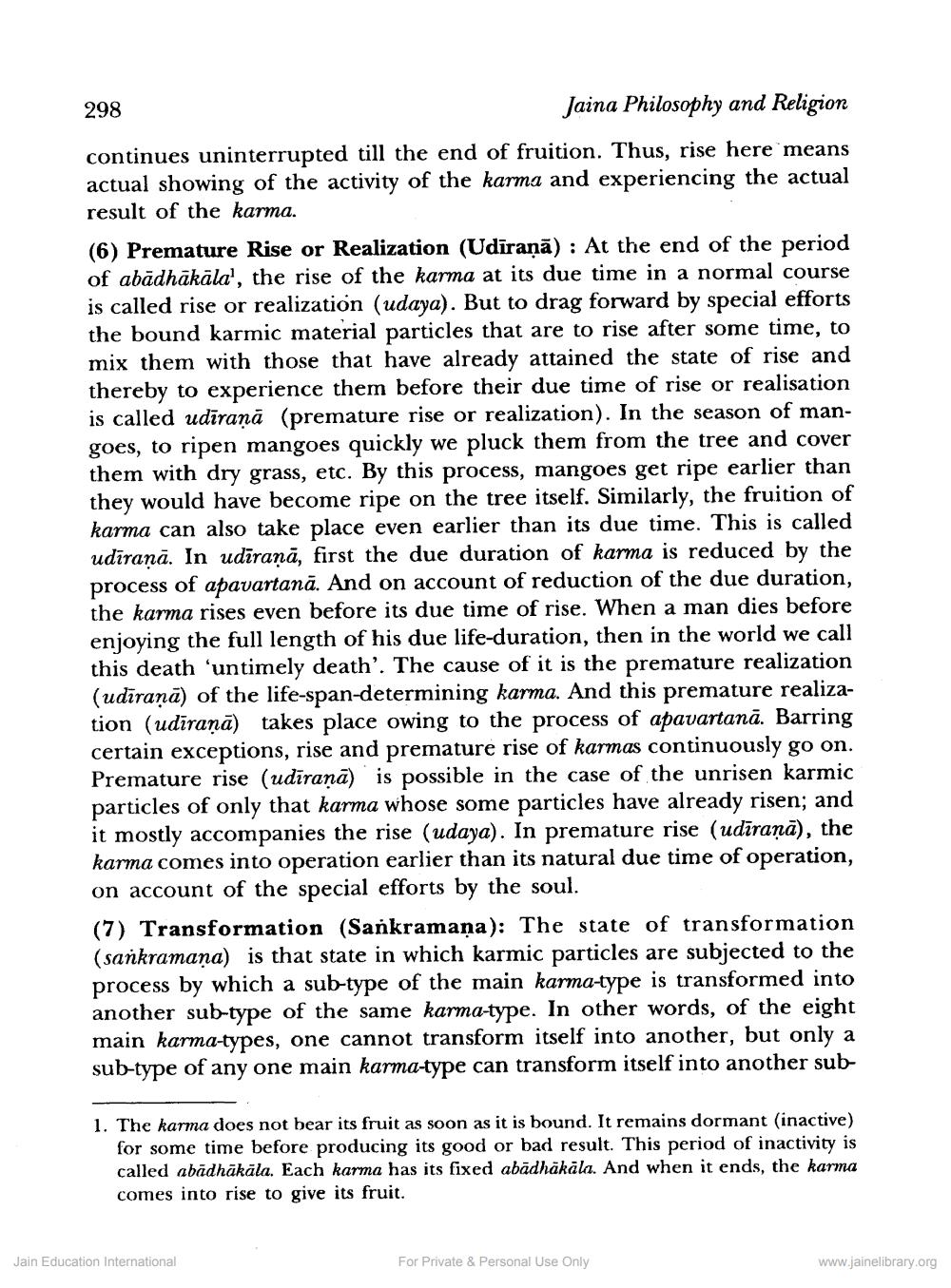________________
298
Jaina Philosophy and Religion
continues uninterrupted till the end of fruition. Thus, rise here means actual showing of the activity of the karma and experiencing the actual result of the karma. (6) Premature Rise or Realization (Udiranā) : At the end of the period of abādhākāla', the rise of the karma at its due time in a normal course is called rise or realization (udaya). But to drag forward by special efforts the bound karmic material particles that are to rise after some time, to mix them with those that have already attained the state of rise and thereby to experience them before their due time of rise or realisation is called udīraņā (premature rise or realization). In the season of mangoes, to ripen mangoes quickly we pluck them from the tree and cover them with dry grass, etc. By this process, mangoes get ripe earlier than they would have become ripe on the tree itself. Similarly, the fruition of karma can also take place even earlier than its due time. This is called udiranā. In udīraņā, first the due duration of karma is reduced by the process of apavartanā. And on account of reduction of the due duration, the karma rises even before its due time of rise. When a man dies before enjoying the full length of his due life-duration, then in the world we call this death 'untimely death. The cause of it is the premature realization (udīraņā) of the life-span-determining karma. And this premature realization (udiranā) takes place owing to the process of apavartanā. Barring certain exceptions, rise and premature rise of karmas continuously go on. Premature rise (udīranā) is possible in the case of the unrisen karmic particles of only that karma whose some particles have already risen; and it mostly accompanies the rise (udaya). In premature rise (udīranā), the karma comes into operation earlier than its natural due time of operation, on account of the special efforts by the soul. (7) Transformation (Sankramana): The state of transformation (sankramana) is that state in which karmic particles are subjected to the process by which a sub-type of the main karma-type is transformed into another sub-type of the same karma-type. In other words, of the eight main karma-types, one cannot transform itself into another, but only a sub-type of any one main karma-type can transform itself into another sub
1. The karma does not bear its fruit as soon as it is bound. It remains dormant (inactive)
for some time before producing its good or bad result. This period of inactivity is called abādhākāla. Each karma has its fixed abädhäkāla. And when it ends, the karma comes into rise to give its fruit.
Jain Education International
For Private & Personal Use Only
www.jainelibrary.org




